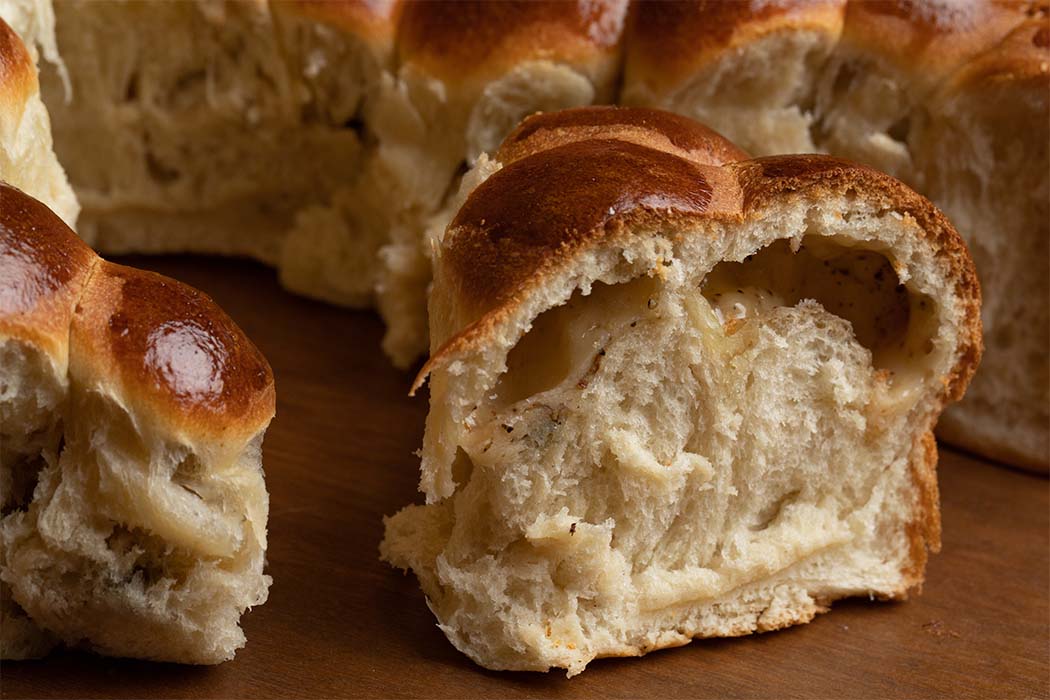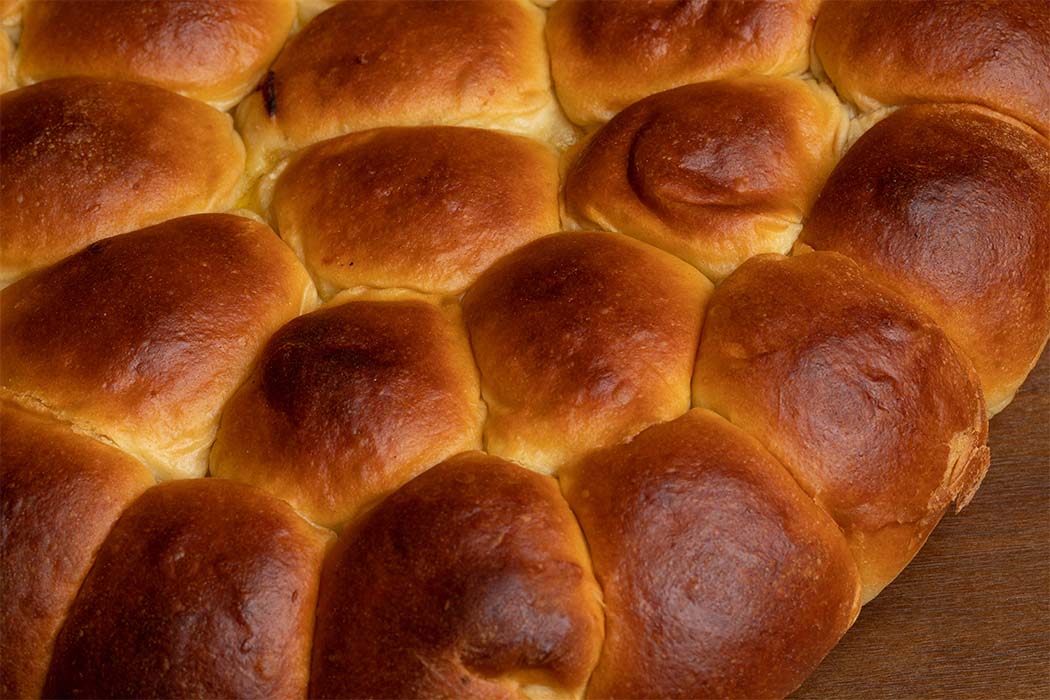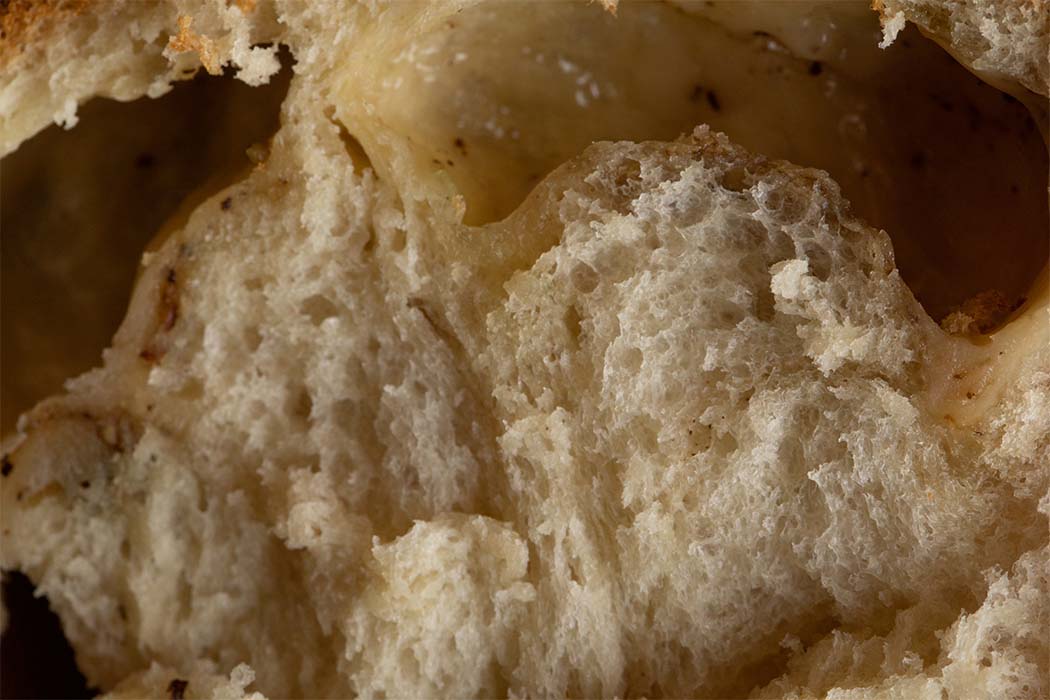For the dough:
175 g Italian type 00 organic flour
175 g Manitoba organic flour
230 ml full fat milk
4 g active dry yeast
40 g cubed butter
30 g sugar
8 g salt
For the sun-dried tomato pesto:
100 g sun-dried tomatoes in oil
20 g peeled almonds
4 anchovy fillets in oil
30 g extra virgin olive oil
For the filling:
10 small mozzarella balls or a cheese of your choice
For palak paneer:
1 onion, chopped
1 tablespoon olive oil
1 clove garlic, chopped
½ -1 fresh green chili, chopped
½ teaspoon ginger puree
½ teaspoon ground cumin, plus a little bit more to taste
1/8 teaspoon turmeric powder
½ teaspoon garam masala
salt and pepper to taste
400 g paneer, crumbled
200g fresh spinach
½ teaspoon fennel seeds
To garnish:
1 egg
2 tbsp milk
poppy seeds or black sesame seeds, white sesame seeds, flax seeds
For the dough
Put the organic flours, yeast and sugar in a stand mixer bowl fitted with the dough hook.
Dissolve the salt in the milk and start mixing at the lowest setting, drizzling the milk into the mixture; mix until the dough has completely come away from the sides of the bowl and is clinging to the hook.
Add a cube of butter at a time, keep mixing and add the next cube once completely the first in completely absorbed; continue until the butter is completely absorbed. The butter should not be cold but very slightly soft.
Tur the dough out onto an oiled work surface and work in it into a ball using your hands; place in a bowl and cover with cling film. Leave to rise for about 2 ½ hours in the turned-off oven.
For the sun-dried tomato pesto
Drain the sun-dried tomatoes of their oil and chop finely.
Put the tomatoes, peeled almonds and anchovy fillets in a liquidiser and blend to a thick paste.
For palak paneer
Sauté the onion in olive oil until softened and starting to turn golden, then add the garlic, chili, ginger puree, cumin, turmeric, garam masala, salt and pepper and cook together a minute or two until it is fragrant. Add the paneer, and stir in, cooking and coating it with the spice and onion mixture.
Add the spinach, then cook together a few minutes until it wilts and cooks through, then add fennel, extra cumin if desired, and taste for salt and pepper, adjusting as necessary.
To fill and bake
Butter and line with baking paper a 28cm-30cm cake tin.
Take the risen dough, flour a work surface and roll out with a rolling pin to a sheet about 3mm-4mm thick. Use a 10 cm pastry cutter to cut 20 discs.
Put a teaspoon of the tomato pesto and half a mozzarella ball in the centre of each disc, with cut side of the mozzarella on the top. Close the sides of the dough to form a ball, pinch very well along the edges so that the filling cannot come out.
Place the stuffed dough balls in the cake tin with the sealed edge on the bottom, starting from the outside of the tin and working inwards. Leave a couple of cms space between each ball. Continue to fill the tin – you should have about 20 balls of stuffed dough.
Leave the balls in the cake tin to rise for about an hour in the turned-off oven o until the balls are not quite touching each other.
Beat an egg with two tablespoons of milk and brush very delicately the surface of the balls so that you do not deflate the dough. Sprinkle the seeds over them, alternating the colours.
Bake in a preheated conventional oven at 175°C for about 40 minutes, then remove from the oven and leave o cool before serving. Bring to the table on a serving plate and leave your guests to help themselves to a piece at a time!
A Danubio is a pull-apart large brioche, buttery and tender, each part to be pulled is a tender little bun or roll, stuffed with either a savoury or sweet filling, a speciality of the inimitable city of Naples. The Danubio napoletano is often served as an afternoon snack, or as part of a pre-dinner appetizer. Savoury fillings could include the sun-dried tomato pesto and mozzarella in the recipe below, or for an Indian flavour, Palak Paneer would make a wonderful filling (see recipe below). Sweet fillings could be jam, pastry cream, sweetened ricotta and sultanas. Danubio is Italian for the River Danube, the majestic waterway that sweeps through Eastern Europe: Austria, Slovakia, Hungary, Croatia, Serbia, Romania, Bulgaria, Moldova and Ukraine. Legend has it that the Danubio was created by Neapolitan pastry chef, Mario Scaturchio in the 1920s. He named it in honour of his Austrian aunt. But others claim that it is based on an old Bohemian pastry filled with plum jam. It then came to Naples when an Austria princess, Maria Carolina, married the Bourbon King Ferdinand 1V of Naples in 1768. She brought her Viennese chefs; they in turn brought the pastry (called Buchteln) recipe. King Ferdinand IV of Naples. Brioche dough is quite sticky, so it is best to use a stand mixer fitted with a dough hook to make these delightful, stuffed buns.


